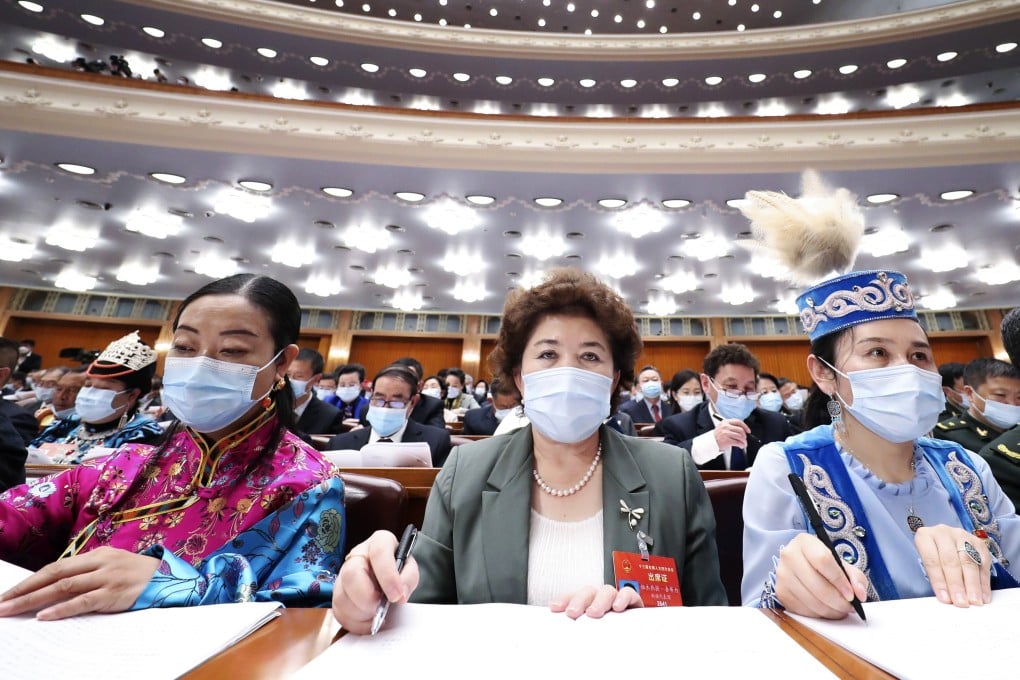Explainer | How well are women and ethnic minorities represented in China’s National People’s Congress?
- Women now make up around 25 per cent of the legislature, but men from the dominant Han group still hold most of the top leadership positions
- Ethnic minorities hold 14.5 per cent of seats – but as one observer notes, they are not able to discuss sensitive topics such as Xinjiang

Beijing has long touted its national legislature as a representative mechanism for China’s people, but the make-up of its delegates show that women do not yet hold up half the sky.
Rory Truex, a China politics specialist from Princeton University, said that while there is diversity within the national legislature, groups such as government officials, Communist Party cadres and businesspeople are generally over-represented, while there is underrepresentation of the working class.
They help shape policy in key areas such as education, health and employment, and Truex noted that “if you have fewer women or fewer people from the working class in any political body in China or elsewhere, it’s going to have consequences for policymaking”.
Women represent 25 per cent of the 2,953 deputies in the current NPC and 20.5 per cent of the 2,156 members of the CPPCC, the country’s top political advisory body.